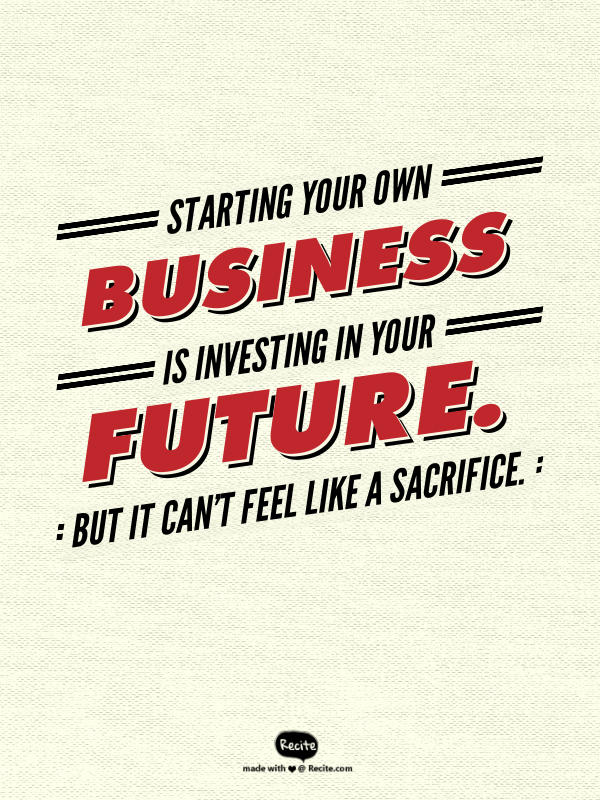
Daydreaming about starting your own business?
Say”yes” to these four questions, and there’s a good chance you’re financially, emotionally and mentally prepared to become an entrepreneur.
1. Have you saved at least one year’s worth of your take home pay?
Financial experts recommend that an emergency savings fund have three to six months worth of a person’s take home pay to have a cushion for life’s unexpected emergencies.
But that rule applies to people with steady income.
An emergency fund of at least year’s worth of your income means you can persevere through the uncertainty of starting your own business.
Your income will fluctuate. That business idea may cost more than you thought. Clients may not pay you quickly. You have to pay taxes four times a year. Life happens. All the while, your health insurance premiums, monthly mortgage payments and basic living expenses don’t let up.
2. Have you calculated the cost of your basic monthly living expenses?
Starting a small business means the sky is the limit on your long-term earning potential. But how will you pay for today, tomorrow, and the day after that?
Calculate your total monthly expenses for necessities (shelter, food, insurance, debt obligations).
Include recurring monthly expenses you’re not willing to give up (like a cell phone bill, a car payment, or a gym membership).
That’s the bare minimum you can afford to make each month when you start a business.
Have to take on a part-time job while you’re building your business to make ends meet? That’s fine. What’s not? Relying on credit cards, or your emergency savings fund to make up the shortfall.
3. Have you calculated the cost of health insurance, taxes, and similar workplace benefits ?
Full-time employment offers expensive perks many of us don’t realize are valuable. Until we don’t have them.
Evaluate your current workplace benefits. You may have to pay for these out of your own pocket once you own your own business.
- Does my employer contribute a “match” to my retirement account? If so, what is the annual value of it? Ideally, you’ll want to be able to stay consistent with your retirement contributions when you open your own small business retirement plan).
- Does my employer pay for all or part of my health insurance premiums? If so, what will you have to pay out of pocket to obtain similar levels of coverage?
- Does my employer pay for my short-term disability insurance, and/or life insurance? If so, how much will you have to pay for the same coverage?
- Does my employer offer a paid vacation and/or maternity/paternity leave? How will you continue paid time off for yourself once you start a business?
- Does my employer offer tuition assistance (that you’ll use)? Are you willing to pay for tuition out of pocket if you wish to return to school?
- Does my employer pay for my cell phone or computer? How will the loss of that benefit impact monthly expenses?
4. Are You Willing to Adjust Your Lifestyle?
If you have a romantic ideal of what it means to be an entrepreneur, you may be in for disappointment.
Starting a business means starting over from scratch.
Until you establish your business, you may need to adapt your lifestyle significantly. That may mean you don’t shop for new clothes each season.Perhaps you’ll have to trade in that high-end luxury model car that you lease, and start using mass transit. You may not be able to pay for lavish vacations or dine out regularly, for the first few years you’re an entrepreneur.
Make sure that you are prepared and ready to make lifestyle changes when starting your own business.
Consider how you’ll find inexpensive ways to continue feeling fulfilled. Instead of that $100 an hour personal trainer, perhaps you start taking a free community yoga class in the middle of the day. Just because you can. Because now you’re the boss of your life.
